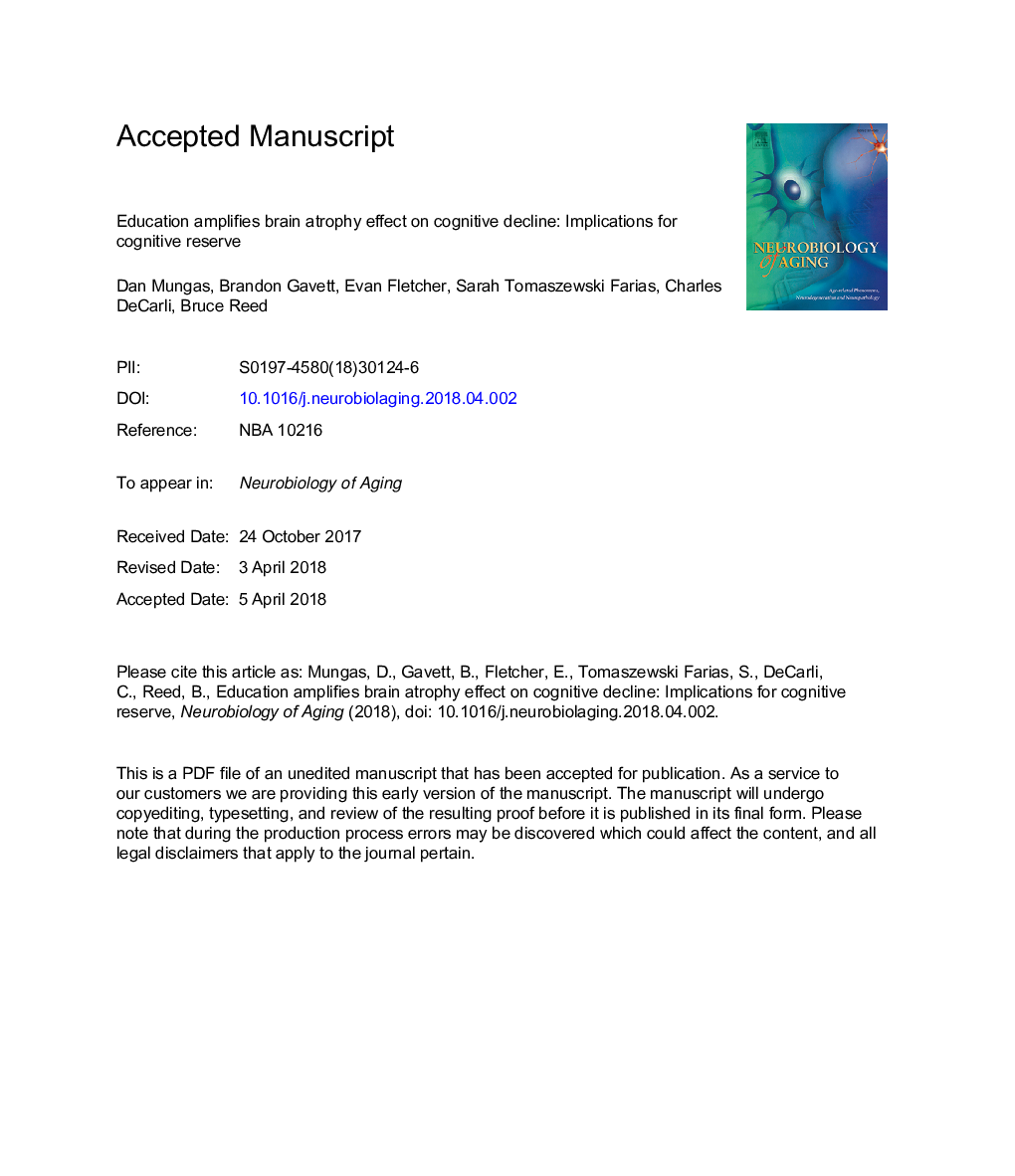| Article ID | Journal | Published Year | Pages | File Type |
|---|---|---|---|---|
| 6802864 | Neurobiology of Aging | 2018 | 48 Pages |
Abstract
Level of education is often regarded as a proxy for cognitive reserve in older adults. This implies that brain degeneration has a smaller effect on cognitive decline in those with more education, but this has not been directly tested in previous research. We examined how education, quantitative magnetic resonance imaging-based measurement of brain degeneration, and their interaction affect cognitive decline in diverse older adults spanning the spectrum from normal cognition to dementia. Gray matter atrophy was strongly related to cognitive decline. While education was not related to cognitive decline, brain atrophy had a stronger effect on cognitive decline in those with more education. Importantly, high education was associated with slower decline in individuals with lesser atrophy but with faster decline in those with greater atrophy. This moderation effect was observed in Hispanics (who had high heterogeneity of education) but not in African-Americans or Caucasians. These results suggest that education is an indicator of cognitive reserve in individuals with low levels of brain degeneration, but the protective effect of higher education is rapidly depleted as brain degeneration progresses.
Related Topics
Life Sciences
Biochemistry, Genetics and Molecular Biology
Ageing
Authors
Dan Mungas, Brandon Gavett, Evan Fletcher, Sarah Tomaszewski Farias, Charles DeCarli, Bruce Reed,
